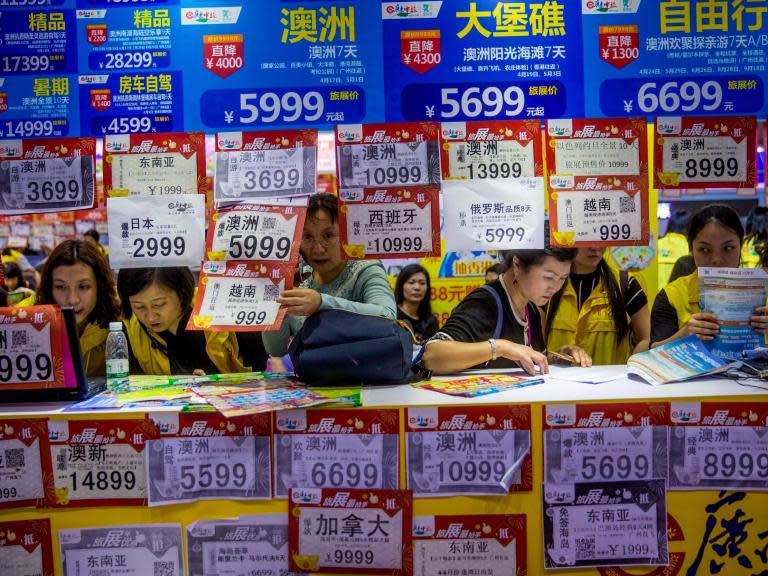China blocks 17.5 million plane tickets for people without enough 'social credit'
The Chinese government blocked 17.5 million would-be plane passengers from buying tickets last year as a punishment for offences including the failure to pay fines, it emerged.
Some 5.5 million people were also barred from travelling by train under a controversial “social credit” system which the ruling Communist Party claims will improve public behaviour.
The penalties are part of efforts by president Xi Jinping‘s government to use data-processing and other technology to tighten control on society.
Human rights activists warn the system is too rigid and may lead to people being unfairly blacklisted without their knowledge, while US vice-president Mike Pence last year denounced it as “an Orwellian system premised on controlling virtually every facet of human life”.
Authorities have experimented with social credit in parts of China since 2014. Points are deducted for breaking the law, but also, in some areas, for offences as minor as walking a dog without a lead.
Offences punished last year also included false advertising and violating drug safety rules, said China’s National Public Credit Information Centre. It gave no details of how many people live in areas with social credit systems.
Social credit is one facet of efforts by the ruling party to take advantage of increased computing power, artificial intelligence and other technology to track and control the Chinese public.
In 2000 the police ministry launched an initiative dubbed “Golden Shield” to build a nationwide digital network to track individuals.
The ruling party is spending heavily to roll out facial recognition systems, and human rights activists say people in Muslim and other areas with high ethnic minority populations have been compelled to give blood samples for a genetic database.
Those systems rely heavily on foreign technology, which has prompted criticism of US and European suppliers for enabling human rights abuses.
This week Massachusetts-based company Thermo Fisher Scientific said it would no longer sell or service genetic sequencers in the Muslim-majority region of Xinjiang following criticism of their use for surveillance.
It also emerged this week that a Chinese company had been tracking the movements of 2.5 million people in the province, using police checkpoints and security cameras to record location data in a system allegedly designed to keep tabs on Muslims.
More than one million Uighurs, Kazakhs and other Islamic minorities in Xinjiang have been detained in re-education camps, according to the UN.
The government insists the camps are vocational training centres designed to rid the region of extremism, but former inmates have allegedly been tortured, forced to consume pork and alcohol, and ordered to renounce their religion.

 Yahoo News
Yahoo News 

